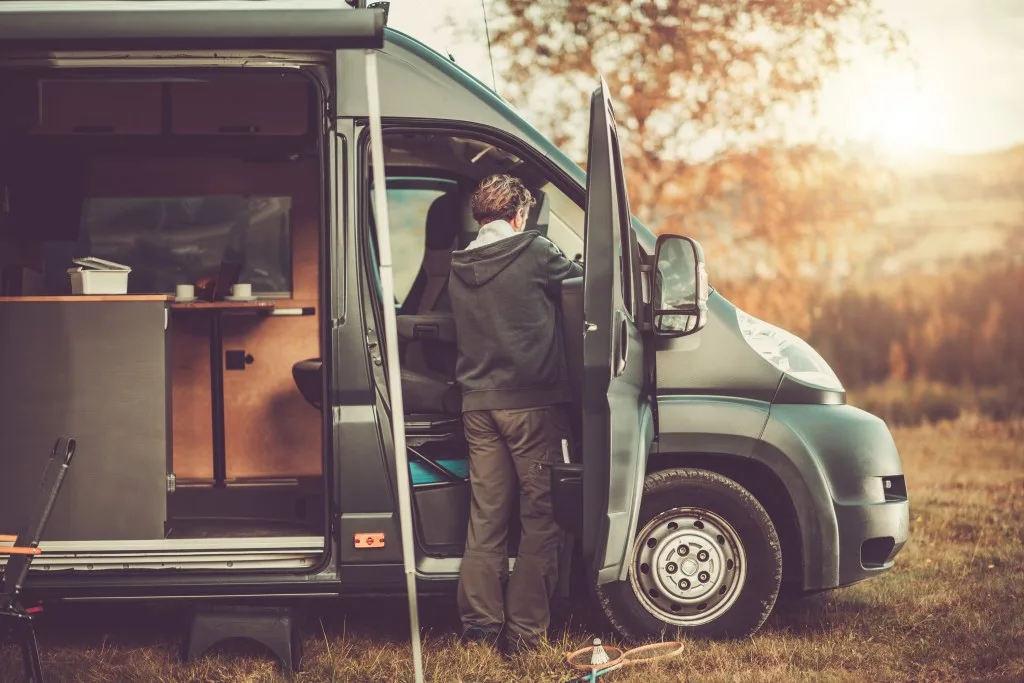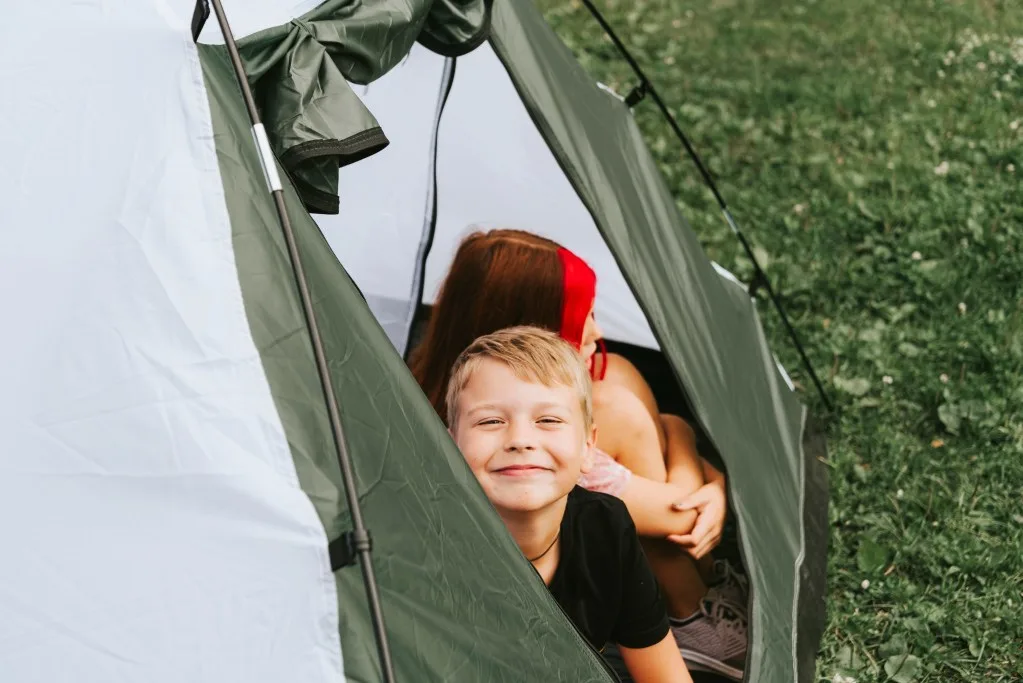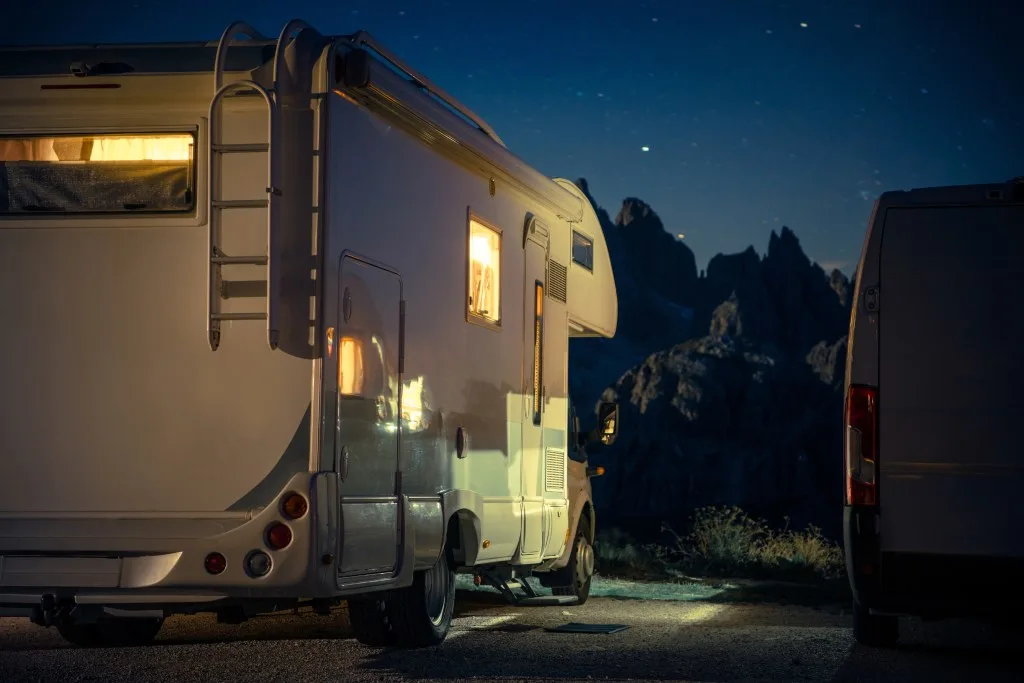National park campgrounds are a great way to experience some of the most unique and breathtaking landscapes our country has to offer. However, like any camping trip, there are a few mistakes campers make that can cause their trip to go south in a hurry. You want your camping memories to be of the epic landscapes and wildlife sightings, not your failures.
We’ve compiled a list of mistakes you should avoid making so you can have a legendary national park camping trip you’ll be talking about for many years.
Let’s get started!
Camping Can Come With a Learning Curve
Camping is a skill that takes time to develop. If you’re new to camping, it can be a bit overwhelming to adjust. The more you camp, the more you’ll learn what works and what doesn’t. Experience will help you when it comes to selecting a campsite, when to camp, and what supplies you need.
When you’re getting started, it’s a good idea to bring someone with you that has plenty of camping experience. Make sure the person’s a good teacher. The more knowledge and experience you can gather, the more likely you’ll enjoy smoother and less stressful camping adventures.
It is a good idea to keep it simple at first. Don’t make your first camping trip incredibly long and in a remote location with no amenities. At first, keep it to no more than a couple of days. You’ll also want the security of knowing that help isn’t far if things don’t go as planned. Biting off more than you can chew will have you packing up camp and heading home early.
Pro Tip: Want to give national park camping a try? Check out these 22 Must See National Parks in 2022.

10 Mistakes Campers Make When Camping at the National Parks
If you want to get the most out of your time while camping at the national parks, there are some mistakes you should avoid. Let’s take a look!
#1. Not Making a Reservation
A decade or so ago, you could show up to many national park campgrounds with no reservation and find a great spot. However, those days are long behind us. You need a reservation if you plan to camp in most national park campgrounds anytime soon.
Many of these campgrounds fill up months in advance. Keep in mind that fewer campsites are available if you have a larger RV. Reservation windows vary depending on the campground. So make sure you are aware of when you can make a reservation. Set a reminder so you don’t forget.
#2. Not Checking for Road Closures and Conditions
You can find yourself in a very sticky situation if you don’t check for road closures or conditions. That can be dangerous because some of these parks are very remote. It could take some time for help to arrive due to non-existent cell coverage in and around many national parks.
Depending on the national park you’re visiting, there may be very few roads. If you don’t check the route, you may need an alternate entrance. Some entrances are hours apart and would require you to backtrack, which would waste time, fuel, and energy.
#3. Avoiding Less Popular Areas of the Park
Most national parks have a long list of popular areas. Many of these areas get very crowded during peak seasons, but some are busy any time of year. We’re not suggesting you skip seeing these areas, but there’s value in breaking away from the crowds.
It can be a magical experience to experience the less popular areas of a national park. Doing so can allow you to listen to the wind as it blows through trees, hear the water rush over rocks in a stream or river, and maybe even spot wildlife that runs from the crowds.

#4. Only Staying One Night
Most national parks require at least a couple of days to appreciate them fully. You’re going through all the effort to get to the national park, set up camp, and acquire supplies, so give yourself time to enjoy it. Don’t be in a hurry to leave!
Staying one night means you’re likely in the campground for less than 24 hours. You’ll barely have time to explore the campground, let alone the national park itself. To get the most out of your experience, don’t anticipate spending any less than two or three days.
#5. Not Coming Prepared
Preparation is important for any camping trip; however, it is essential when camping in a national park. While you may be able to run down to the local big-box retailer when camping at other campsites, you likely won’t have that luxury when camping in national park campgrounds. A trip to town to pick up something could require a considerable drive, which means heading back into everyday life and leaving the national park.
Have a checklist and think through everything you’ll need during your trip. You want to have enough food and the appropriate clothing for the weather conditions when you’re camping. You want to avoid making unnecessary trips out of the campground or park.
Pro Tip: Make camping easier by using these 7 Simple Camping Hacks for Less Than Ten Bucks.
#6. Sleeping In
There’s a time and place for sleeping in. However, neither are when you’re camping in a national park. Get an early start so you can get that morning cup of coffee down and have breakfast before heading out to explore the park.
The more time you spend in your sleeping bag, the less time you have for adventuring. Some sections of the park can get busy or are only available during the daytime, so you’ll want to get there early.

#7. Leaving Food in Your Campsite
When camping in a national park campground, a big no-no is to leave food in your campsite. Unattended food attracts wildlife and trains them to rely on humans for food.
Keep in mind that some campgrounds have bears and other wildlife that can be extremely dangerous. Leaving food at your campsite can attract these dangerous animals, resulting in serious issues for the campground.
Animals have attacked guests at Great Smoky Mountains National Park, Grand Teton National Park, and Yosemite National Park over food. You can receive a fine if you leave food out at your campsite and attract wildlife.
#8. Being a Nuisance to Your Neighbors
Most people stay in national park campgrounds to enjoy them and disconnect from everyday life. One of the best ways to ruin the experience is to make it difficult for those around you to have a good time.
Many people want to listen to music or enjoy a late-night chat around a campfire. However, they forget that others might be sleeping or not interested in their music. Keep the volume down, don’t encroach on their space, and make sure everyone can have a good time.

#9. Not Talking to a Park Ranger
The National Park Service hires some incredibly talented men and women to serve as park rangers. They love the national parks and often are some of the most knowledgeable people regarding the particular park they are protecting.
Stop and talk to them, and see what you can learn. As long as you’re not interrupting them, they’ll likely enjoy talking about the park and sharing their knowledge with you. You may even learn about a top-secret spot that the large crowds haven’t discovered yet!
#10. Leaving a Trace
You should always leave the campsite in better condition than when you arrived. Make sure you pick up trash and don’t leave anything behind when you leave. Don’t destroy vegetation or cause damage to the area. This is typically why campgrounds get shut down, as the land requires time to heal.
Be Prepared to Camp in the National Parks
If you want to make the most out of your time camping in the national parks, you need a plan. Do your research for not only the campground, but also the national park. Know what to expect when you arrive and have an idea of how you’ll navigate crowds and traffic to accomplish everything on your list.
Despite rising crowd numbers, you can still have an unforgettable time camping in a national park campground. Be flexible and stay positive during your trip.
Which national park would you camp in if you had the opportunity? Tell us in the comments!
Discover the Best Free Camping Across the USA
To be honest with you, we hate paying for camping. There are so many free campsites in America (with complete privacy).
You should give it a try!
As a matter of fact, these free campsites are yours. Every time you pay federal taxes, you’re contributing to these lands.
Become a FREE CAMPING INSIDER and join the 100,000 campers that love to score the best site!
We’ll send you the 50 Best Free Campsites in the USA (one per state). Access the list by submitting your email below: